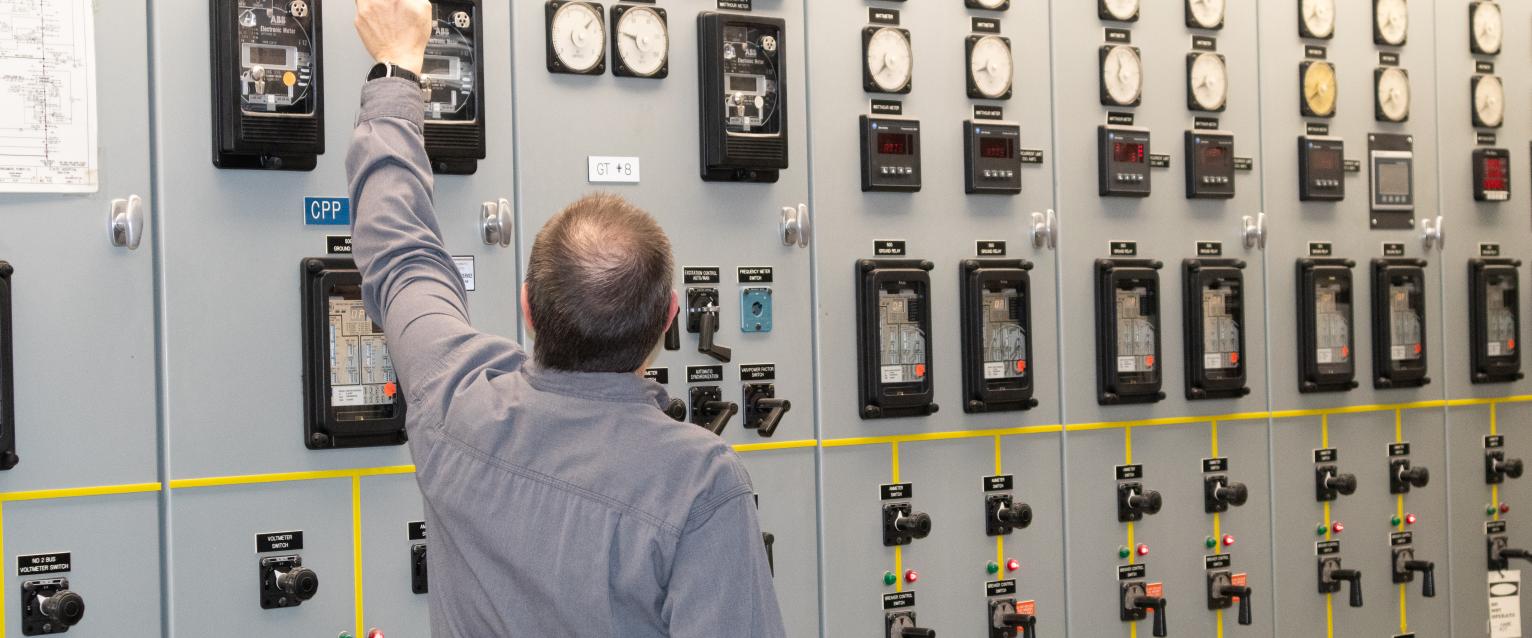Training Programs

Training Program Overview
The Robert M. Beam Power Plant at Western Michigan University offers a comprehensive, hands-on Workforce Development Program designed to prepare individuals for long-term careers in power generation and industrial trades. Operating with highly specialized systems, the power plant requires a well-trained workforce. To meet this need, all new employees follow a structured training and apprenticeship pathway—from foundational job performance measures to advanced certifications in powerhouse operations—equipping them with the skills, experience, and credentials essential for success in the energy industry.
Phase 1: Initial Probationary Period (6 Months)
New hires begin with a six-month probationary period focused on mastering essential plant operations. During this time, employees complete a series of job performance measures under the guidance of a subject matter expert. These tasks cover key safety procedures and operational routines required to run the plant efficiently.
Phase 2: Pre-Apprenticeship Training (18 Months)
After successfully completing probation, employees enter the 18-month pre-apprenticeship phase. This includes:
- Coursework at Kellogg Community College’s Regional Manufacturing Technology Center (Battle Creek, MI), focusing on stationary engineering theory.
- Earning a Fourth-Class Power Engineer’s License from the National Institute for the Uniform Licensing of Power Engineers.
- Completion of two sets of job performance measures covering basic and advanced plant maintenance.
Once this phase is completed, the employee is officially registered as an apprentice with the U.S. Department of Labor.
Phase 3: Registered Apprenticeship (8 Years)
Apprentices specialize in one of two crafts:
- Powerhouse Electrician
- Powerhouse Mechanic
Requirements include:
- 8,000 hours of on-the-job learning
- 1,500 hours of related instruction at Kellogg’s training center
Apprentices receive pay increases at both 50% and 100% completion milestones.
Journey-Level & Incentive Opportunities
Upon completion of the apprenticeship, journey workers can pursue advanced certifications in their trade. Two additional levels of incentive training are available, each tied to further skills development and corresponding base pay increases.

